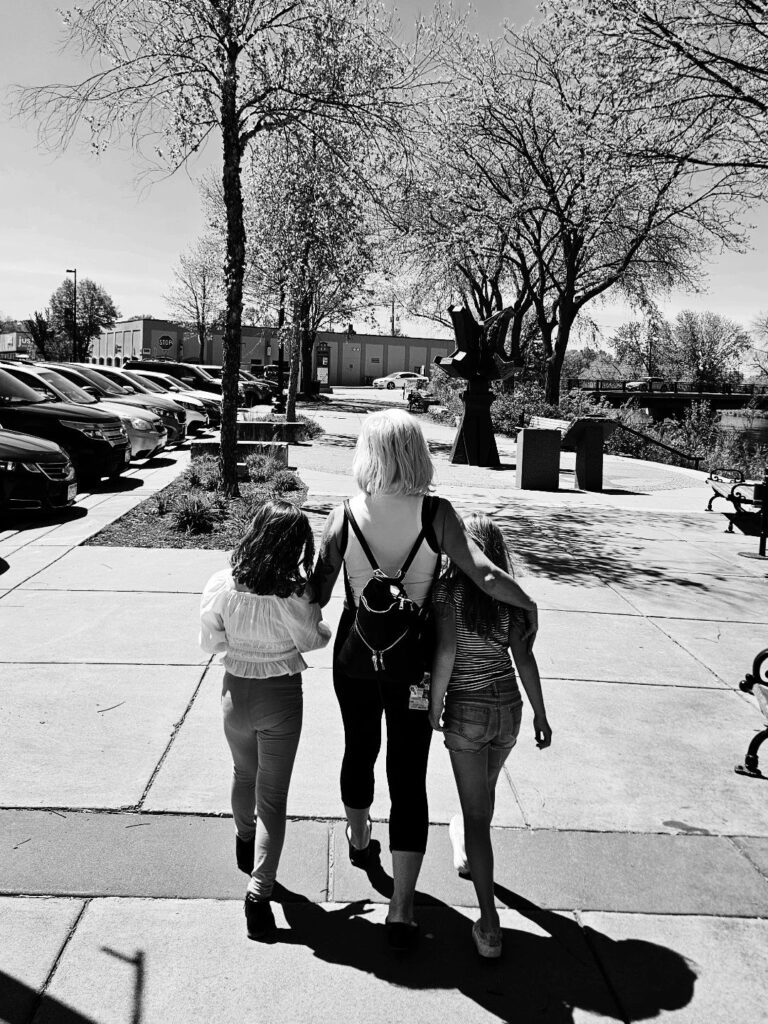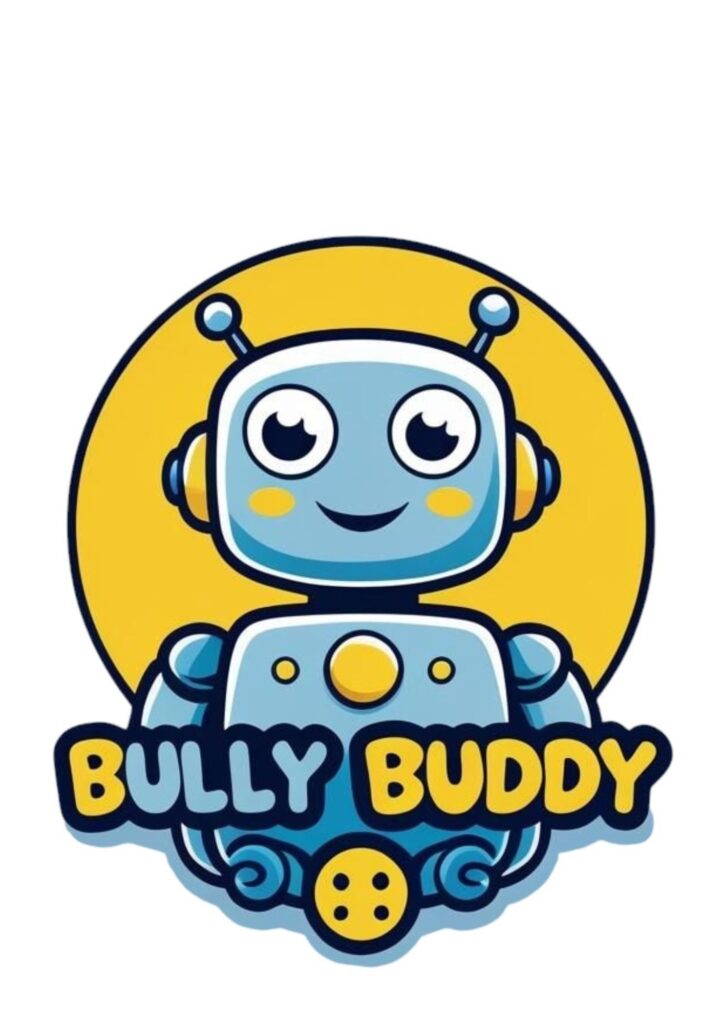
Feature Story
Feature Story
How Jess Toft Is Redefining The Language Of Empathy with AI
BY pamela zembani
Some people walk into a room and naturally draw attention, while others can shift the energy of the space. Jess Toft is one of those who rearranges the energy. She speaks softly, listens deeply, and carries the quiet certainty of someone who has dedicated her life to understanding the nuances of communication. Her leadership style isn’t about performance; it is intrinsic and authentic. She doesn’t need to raise her voice to make an impact. There’s no need for her to announce herself as a founder, educator, designer, and neurodivergent woman breaking barriers in the field of AI. You can feel her presence the moment you meet her. However, it wasn’t a pitch deck or a TED Talk that led to her most significant innovation. It was a profoundly personal moment that no mother ever forgets, watching her child suffer, fully aware that the world lacks the vocabulary to define that pain.
The Moment That Sparked a Movement
Socially, Brynlee – Jess’s daughter, wasn’t being pushed or yelled at. Instead, she was being excluded. Systematically. Quietly. She was left out of birthday parties and noticed that conversations would stop as soon as she entered a room. The inside jokes carried an unspoken message: “You don’t belong here.” When Jess raised her concerns with the school, the response was predictable and almost rehearsed: “She’s just sensitive. She’ll toughen up.” But Jess recognized the dismissive language. She could see the gaslighting for what it was. What Brynlee was experiencing wasn’t simply unkindness; it was bullying in one of its most insidious forms. This type of bullying leaves no visible scars but cuts deep enough to erode a child’s sense of self-worth. So Jess did what she has always done: she took the pain and turned it into purpose.

Jess with her children
.
A Platform With a Pulse
Jess’s fingers hovered over the keyboard, the cursor blinking back at her like it was holding its breath. Beside her, Dustin Dean – lead at Glee Labs, her advisor and quiet champion through it all watched as she typed the very first query into the app she had spent months building from the ground up: “What should I do if my daughter is being left out every day, and the school says it’s not bullying?” She hit Enter.
The answer appeared almost instantly, but Jess barely registered the words. The tears came first. Not because the algorithm worked, but because for the first time, something, even if it was a machine, understood.That moment was the heartbeat behind Bully Buddy. Bully Buddy is your compassionate AI, a Reality Anchor for Clarity, Healing, and Respectful Interactions. It is not a tagline. It is a manifesto. Bully Buddy is a trauma-informed, emotionally intelligent AI designed to help people navigate the invisible wounds of psychological manipulation, gaslighting, exclusion, and bullying, whether in school, at work, in families, or online. It’s not a therapist. It’s not a friend. It’s something else entirely: an emotionally neutral, always-available companion that helps you get back to the truth beneath the noise. Bully Buddy was born out of Jess’s lived reality, watching her daughter Brynlee suffer the quiet cruelty of exclusion while the adults around her dismissed it as “oversensitivity.” Jess knew the language of dismissal too well. So she built a platform that refuses to look away.
- Find clarity in confusing or emotionally loaded situations
- Rebuild trust in their own instincts and perception
- Access coping tools and guidance toward healing
- Learn healthier, restorative ways to engage with others.
Unlike other platforms, Bully Buddy isn’t built to replace human connection. It is designed to anchor you, to help you hold your center when the world seems intent on throwing you off balance. Every line of code was written with inclusivity in mind, particularly for neurodivergent individuals whose experiences are often misunderstood or overlooked. Bully Buddy sees what others miss. It recognizes subtle power dynamics, flags patterns of emotional harm, and guides users toward clarity without judgment. What Jess created isn’t just technology. It’s a lifeline for Brynlee, for countless others, and for anyone who has ever questioned whether what they felt was real.

Bully buddy
“It was when I knew we had built something that could speak truth where institutions gaslight. That could hold people when systems drop them.”
Creativity As Survival
Jess didn’t arrive at this work through Silicon Valley. She arrived through survival. “Growing up without a lot of financial resources taught me to make something from nothing,” she says. “Creativity wasn’t about art. It was about function. It was a way of thinking. A way of living.” That resourcefulness is woven into every system Jess builds. Whether she’s designing education programs or startup frameworks, her leadership model is never top-down. It’s fractal. Collaborative. Sustainable. She identifies strong foundational players and empowers them to co-lead, ensuring the impact doesn’t depend on a single voice at the top.And that approach isn’t accidental. Jess knows what it feels like to be dismissed, to be underestimated. “For a long time, no one took me seriously,” she says. “I learned not to waste time trying to prove myself. I just started showing up. Silently. Consistently. I let my work speak.”Her leadership style is informed by emotional intelligence and radical empathy, even in professional rooms where those qualities are undervalued. Especially in those rooms.
“I don’t introduce myself the same way every time. I read the room first. Then I decide who I need to be.”
The Power of Naming What Was Never Named
Jess identifies as neurodivergent, diagnosed with ADHD, and self-aware enough to know she likely falls somewhere on the autism spectrum. But labels, for her, are never the point. “I’m not interested in labels for their own sake,” she says. “I’m interested in liberation. What matters is how we move through the world and how the world moves around us.” She is particularly attuned to how autism often shows up differently in women and girls, masked by high-functioning facades and relentless over-adaptation. That invisibility is part of what drives her to build spaces where no one has to hide or perform. Online, Jess has long found solace in the ability to set boundaries with a click. But she doesn’t want true safety to exist only in digital form. Her mission is to bring that same sense of clarity and emotional safety into real life, to create communities where everyone can simply be.
“I want to bring the calm of the digital world into the chaos of the physical one.”
Emotional Truth Meets Algorithmic Clarity
When Jess first stepped into the AI space, it wasn’t to innovate. It was to survive. She was in a dark place, struggling to communicate even with the people closest to her. Traditional methods weren’t working. Therapy wasn’t enough. She didn’t need more affirmation. She needed clarity. She needed a tool that could make sense of patterns when her world felt like chaos. So she began building one. At GLEE Labs, where Bully Buddy was born, the mission was never just about technology. It was about creating an emotional refuge. Jess and her small team, including expert advisor Dustin, weren’t simply programming features. They were training empathy into code. Because people in crisis don’t always say, “I need help.” They say, “I can’t take this anymore.” They say, “Nobody would notice if I were gone.”
Bully Buddy was designed to hear what others might miss and to respond in a way that helps people hold on. It’s these hidden messages, often masked by fear, shame, or trauma, that Bully Buddy was built to catch. Not by scanning for keywords alone, but by reading between the silences. The AI doesn’t just “listen.” It recognizes emotional subtext. It responds with gentle inquiry, deep compassion, and most importantly, a sense of safety. There’s no fear of judgment, no automated alarm bells. Just a steady presence, creating space for someone to be heard and slowly supported. “We are creating a system that responds the way the best human would,” Jess says. “With patience. With presence. With dignity.” This isn’t simply innovation but intervention and a lifeline for the moments when speaking plainly feels too dangerous and silence becomes too heavy to carry alone. What Jess discovered was that AI, when used with care, could do something people often can’t: hold up an unbiased mirror to reality. Not to replace empathy, but to enable it. Not to feel for you, but to help you feel safe. Bully Buddy doesn’t analyze to judge. It analyzes to help. To decode. To guide. Jess calls it a friend from the future, the version of yourself who can already see clearly.

“People bring their pain into every conversation. AI doesn’t. That’s its strength.”
The Ethics of Soft Technology
In a world that often equates AI with cold logic and disconnection, Jess has built something quietly countercultural. She doesn’t believe empathy is a liability in tech. She believes it’s the next frontier. Her team collaborates with advisors in child development, neurodiversity, psychology, and restorative justice to ensure Bully Buddy is designed not just to perform, but to protect. Every feature is vetted for emotional safety as rigorously as it is for usefulness.
Jess is equally clear about what AI should never do:
- Replace human connection
- Make life-altering decisions without consent
- Operate in secrecy or silence
“Its purpose is partnership. Its power is presence,” she says.
A Legacy of Soft Power
The most surprising part of building Bully Buddy, Jess admits, wasn’t learning about technology. It was learning about herself. She began to see how bullying had shaped her long before she ever had the words for it. She saw how many systems are built to protect the powerful and gaslight the vulnerable. And she saw often with painful clarity, how bystanders stay silent, not because they don’t care, but because they’re afraid they’ll be next. That’s why she built a tool that speaks even when others won’t. One that protects without needing a crowd.
“If Bully Buddy were a person, it would be the friend who knows your patterns, your pain, and never walks away.”
It is, in every way, the friend that Jess wishes she had. In five years, she hopes emotionally intelligent AI will be as common as school counselors, workplace wellness programs, or trusted family friends. More importantly, she hopes we have learned to create systems and relationships that do not require people to prove their pain. Because sometimes, the softest thing in the room is also the strongest. And Jess Toft is proof of that.
To learn more about her work, visit www.bullybuddyai.com.
Get more information about Glee Labs at: www.glee-labs.com.
